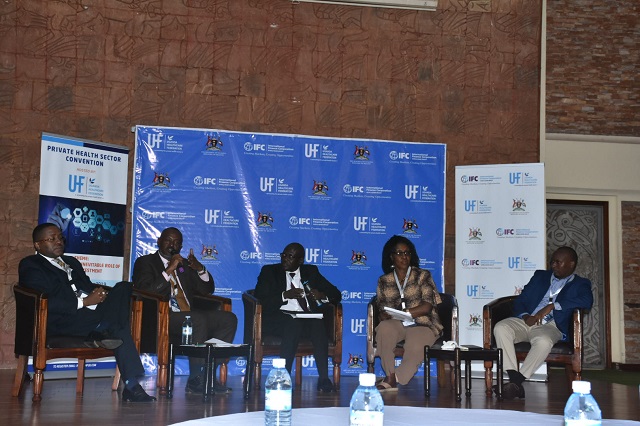
Kampala, Uganda | THE INDEPENDENT | Private healthcare providers have decried the challenges of accessing credit from financial institutions.
Dr Edward Rukwaro from Nakasero hospital said that it’s very risky investing in Uganda’s health sector.
“Medical equipment is very expensive. It would help us a lot if there was a provision where we can get these on loans and pay in installments until we finish”, Rukwaro said.
Speaking at the Private Health Sector Convention on Wednesday, Rukwaro, said that private players need to discuss with government more incentives that they can benefit from since he says for instance with pharmaceuticals the market is there but is not well leveraged especially with the National Health Insurance Scheme coming up.
However, Maina Sahi, the Director Strategy, Health and Education with the UK based CDC group said many countries are running to start public health insurance systems in order to achieve Universal Health Coverage but warns that sustaining the schemes will be very difficult because only a small percentage of the population are employed and can make meaningful contribution to the schemes.
Sahi who delivered the keynote address on how private healthcare investment can be leveraged to achieve Universal Health Coverage said government should think deeply about how the private sector can be supported since even with free healthcare, many still seek services from private providers and pay for their services.
At the opening of the Private Health Sector Convention in Kampala this morning, Commissioner for Partnerships at the Ministry of Health Tom Aliti said that the private sector through hospitals and clinics still serve more than 60% of the population even as there’s free healthcare offered in government facilities.
He, however, noted that even as there are many players and some pharmaceutical companies have opened up, the majority of medicines at 70% are still imported.
******
URN
 The Independent Uganda: You get the Truth we Pay the Price
The Independent Uganda: You get the Truth we Pay the Price





